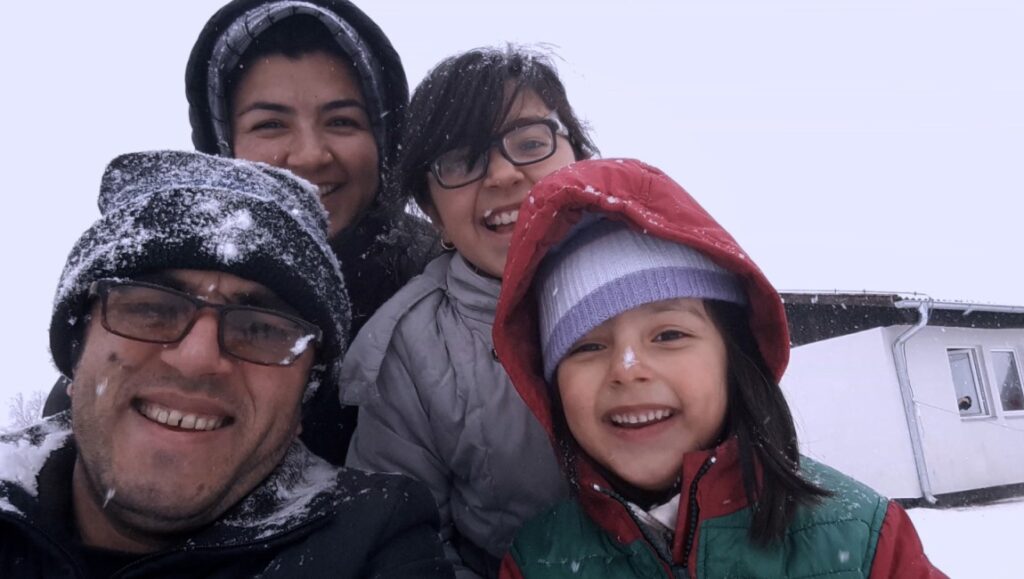Precise figures will vary, but the fact remains that our world is in the midst of the largest refugee crisis since WWII. The convergence of drought, civil strife, and poverty — all linked to global warming and disaster capitalism, as carefully delineated by Naomi Klein’s 2014 book This Changes Everything — has led to the displacement of millions and millions of people worldwide. It’s a sad truth that we need reminders that these are people, not just numbers and statistics and phantom boogeymen to be used as rhetorical pawns in political gamesmanship. Midnight Traveler is an urgent document that puts the human cost front and center, giving us a glimpse of what life is like for a refugee family. It’s an important work, but also a bracing aesthetic object in its own right.
Constructed entirely out of footage shot on cell phones over a number of years, Midnight Traveler follows filmmaker Hassan Fazili, his wife and co-director Fatima Hussaini, and their two young daughters, Nargis and Zahra. The film begins in Tajikistan, since the family had been forced to flee Afghanistan due to death threats from the Taliban. But their asylum application has been denied and the family is being deported back to Afghanistan, where Hassan is convinced they will face certain death. We follow them as they flee again, first to Bulgaria and then to Serbia, where they live for almost a year and a half. They eventually return to Hungary for a hearing and are granted asylum status, although the film’s conclusion leaves them still unsure where they will be able to permanently settle. It’s a harrowing journey, made all the more so by the immediacy and intimacy of the video footage.
If the film has a flaw, it’s only that one wishes it were longer. It is, by design, episodic and limited only to preexisting footage, so there’s no additional photography or talking heads to fill in blanks. And the film’s brevity means that the audience doesn’t always feel the full weight of this experience. As directors and videographers, Hassan and Fatima both have a good eye, and certain scenes and moments are allowed to linger, fleeting glimpses of beauty and poetic digressions offer a picture of life beyond brutal, day to day realities. As the film contains footage from over three years of travelling, we see Nargis and Zahra grow, and they are truly remarkable children. The film has several unforgettable scenes of the children simply being. Their resilience is extraordinary. The last words in the film are given to Nargis, who declares in voiceover narration that “I’m going to forget; I don’t want to remember this in the future.” Hopefully these scars can heal for her, but it is imperative that we, the audience, never forget.
Published as part of September 2019’s Before We Vanish.


Comments are closed.